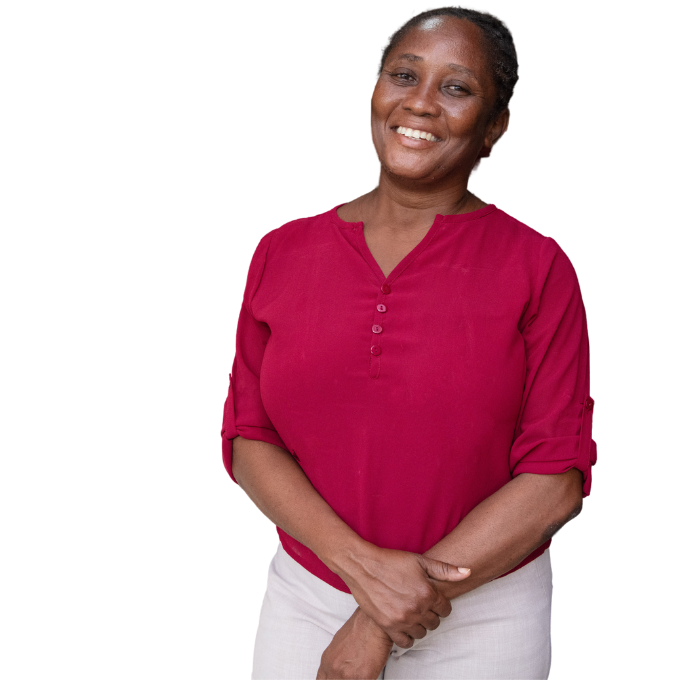Story
A Medical Mission to a Haitian Prison (Video)

The prisoners at Haiti’s national prison in Les Cayes are crowded in their cells so tightly that they must sleep in shifts, rotating throughout the day and night. One lucky prisoner has rigged a hammock strung from the cell’s ceiling where he perches, rocking back and forth and surveying the chaos of the prison below.
In these cramped conditions, with up to 50 men in a cell, diseases and contagions spread like brush fires through the population. In one cell, dozens of men with red-rimmed, conjunctive eyes clamor against the cell bars as visitors pass. “Mwen malad!”—I am sick—they call out in Creole.
Take a look at the conditions inside the prison:
“Tuberculosis is a big problem,” said Dr. Inobert Pierre, the Director General of SBH who recently traveled to the Les Cayes prison with a group of surgeons on a medical mission. “And the disease spreads easily because the prisoners are so close together,” he added.
In February, at the invitation of the Haitian Bureau of Prisons, Pierre accompanied a team including surgeon Dr. Ken Hagan, neonatologist Dr. Ron Carzoli and several nurses volunteering for HEI/SBH to perform surgeries on 11 prisoners at Les Cayes. The trip was our second prison surgical trip. In June 2011 a volunteer team operated on 10 prisoners at the public hospital in Les Cayes.
“We had a young man in his 20’s presented with what he thought was a hernia but upon examination, Dr. Hagan noted that he had a very hard mass on his testicle – consistent with testicular cancer,” said Dr. Ron Carzoli. With radiation and chemotherapy virtually nonexistent in Haiti, the team consulted with the patient and told him that removing the testicle cures the cancer in more than half of all cases. “The diagnosis was confirmed during surgery and the patient gave us permission to remove the cancerous testicle,” Carzoli said. “So that was one life potentially saved.”
Most of the surgeries performed, however, are hernias—a particular problem in the over-crowded prison that may be attributable to malnutrition caused by a low-protein diet or the heavy lifting required in prison labor, said Pierre.
A quick glance at the prison’s outdoor kitchen—where a work-weary woman is stirring a large cauldron of sludge-like porridge—lends credence to Pierre’s observations about nourishment. In fact, he says, the surgical team had to turn some of the prisoners away, deeming them too anemic to survive the procedure.
HEI/SBH considers prison outreach part of its mission of helping when no one else can. We seek to serve those populations who have been turned away or ignored or are not accessible to other medical care providers. The prison’s one nurse is currently overwhelmed with caring for her charges, Pierre said.
And one thing is clear about prison life in Haiti: It looks nothing like prison life in America. “It’s night and day,” Pierre said. The inequities of Haiti’s prison system—where inmates can be locked up for years in pre-trial detention for offenses as far-ranging from stealing a goat to accusations of being a werewolf—have been well-documented in the media. In January the New York Times reported that eight police officers had been convicted for their part in a 2010 prison massacre at Les Cayes where guards opened fire on unarmed inmates trapped in their cells.
In June an SBH surgical team repaired a large inguinal hernia on a 25-year-old prisoner named Solomon Rosier who had been locked up in Les Cayes for nine months, accused of killing his sister through a voodoo curse. Rosier, a former mason from the town of Maniche, told doctors he had not yet stood trial, had no lawyer, and no hope of ever being set free. Rosier explained through a translator that he feuded with his family over religion—they wanted him to convert to Baptist and he refused. He said that when his sister became ill and died, his family pointed the finger at him, accusing him of voodoo. The prison guards who stood watch over Rosier as he recovered from his surgery echoed his story, saying he’d been accused of “majik.”
“We know that many of these prisoners have been imprisoned for an indefinite period of time with no trial, no chance to appeal and often on false or misleading information,” Carzoli said. “The conditions in Haitian prisons are dismal, with severe overcrowding, inadequate supplies, and very limited or no access to medical care. We treat these patients as we would any others—as people with a medical problem that needs to be addressed. Without SBH, these patients would have no opportunity to receive much-needed surgeries,” he added.
